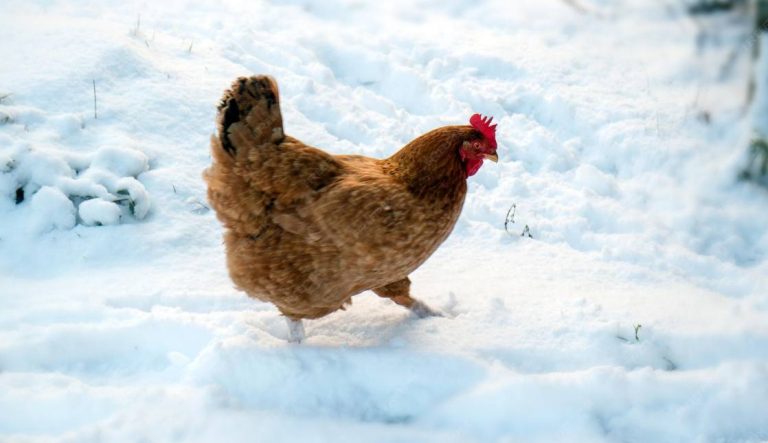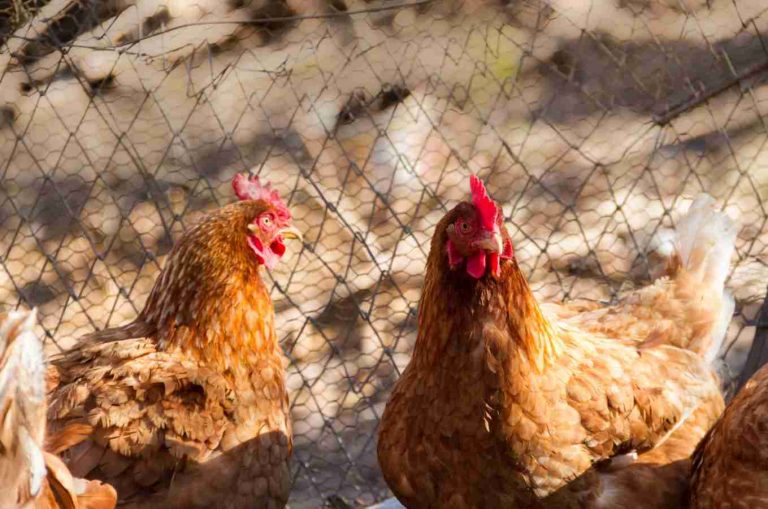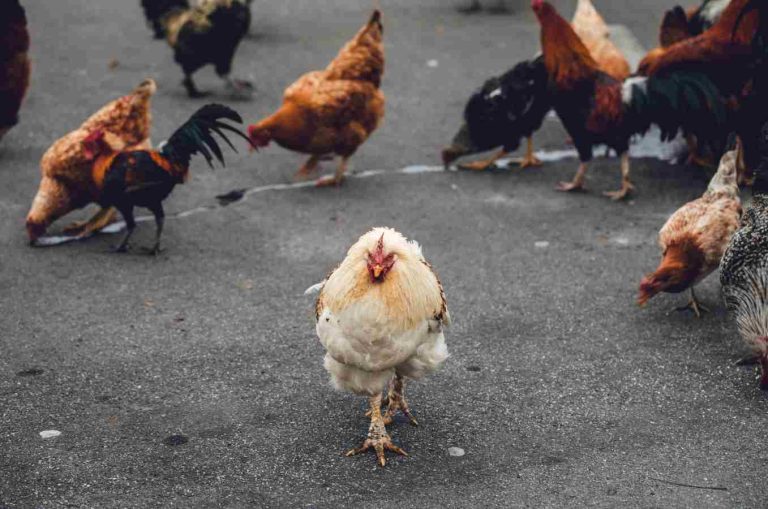Why’s Poultry Equipment So Key to Today’s Farming?
How Poultry Equipment Boosts Output and Smooth Running
Folks want more chicken stuff worldwide and today’s farms gotta lean hard on fancy poultry gear to keep up. Machines don’t just crank up output; they cut worker costs and slip-ups. Auto feed, water, poop cleanup and egg pickup setups let farmers handle bigger groups with spot-on control and less hands-on work.
A complete set of automated machinery and equipment realizes the automated control of cage systems, feeding systems, ventilation systems, drinking water systems, and manure cleaning systems.
How Does Auto Stuff Change Daily Farm Chores?
Auto setups shake up the everyday grind on poultry farms by keeping feed times steady, temps right, and cleanliness on point. Machines make sure birds get chow and water on schedule. They keep the place comfy by handling heat, dampness, and air flow—cutting sickness chances.
What’s the Payoff from Dropping Cash on Good Poultry Equipment?
Putting money into solid poultry gear means happier birds, cleaner eggs, fewer deaths, and fatter profits overall. Plus, tough stuff that lasts longer saves on swaps down the road.
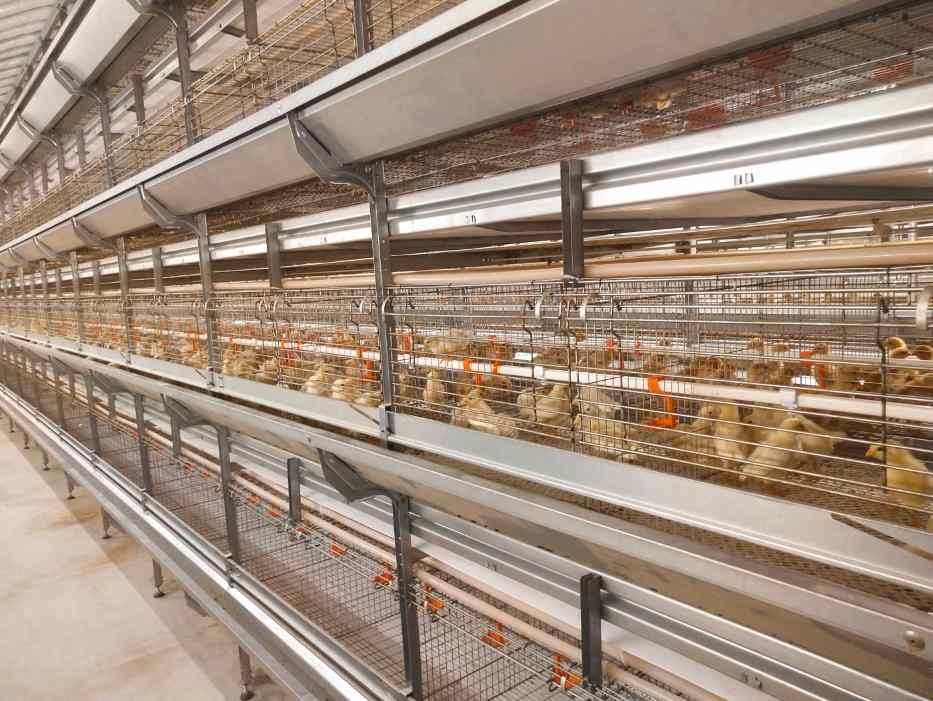
Housing Setup: What Builds Keep Birds Growing Strong?
Why Good Housing Matters
A smart housing setup is the backbone of any poultry gig. It shields birds from predators, bugs, and wild weather while making management a breeze.
Air Flow and Temp Control System
Good air flow kicks out extra heat, wetness, and bad gases like ammonia. ZEUS’s equipment is equipped with a fully automatic environmental controller, and the computer calculates reasonable ventilation to ensure good air in the chicken house.
Lights and How They Mess with Bird Habits
Light plans tweak eating, breeding, and growth speed. LED lights with timers are a common add-on in auto poultry houses.
How Do Cage Setups Stack Up Against Floor Ones?
Cage setups give birds their own or group spots, making the most of space and keeping germs in check. Open floor systems offer more freedom of movement but may increase the risk of contamination and require more intensive management.
Big Things to Think About When Picking Housing
Farmers gotta weigh bird kind, farm size, auto level, germ safety needs, and cash when choosing cage or floor setups.
The selection and use of young chicken equipment should be determined based on the actual situation and breeding requirements.
Feed and Water Systems: How Do Birds Get Fed Right and Fast?
What Kinds of Feed Gear Do Farms Use?
Feeding systems play a vital role in ensuring birds receive adequate nutrition for optimal growth and egg production.
Auto Feeders vs. Hand Feeding
Feeding is uniform, low noise, energy-saving, sturdy and durable; the feeder is equipped with running wheels, which can reduce the friction between the feeder and the feed trough and extend the service life.
Auto feeders slash worker needs and dish out feed even compared to hand methods.
Feed Storage and Moving Parts
Feed silos plus auto lines keep chow flowing steady from storage to troughs.
How Do Water Systems Keep Water Clean?
Clean water is essential for bird health. Automated drinking systems reduce spillage and contamination.
Nipple Drinkers vs. Bell Drinkers
Nipple drinkers offer better hygiene as they minimize standing water. Bell drinkers may be easier to install but require more frequent cleaning.
Stopping Germs in Water Lines
The drinking water system: Provide clean drinking water to laying hens.
Flushing lines regular and using filters are key to keeping water good.
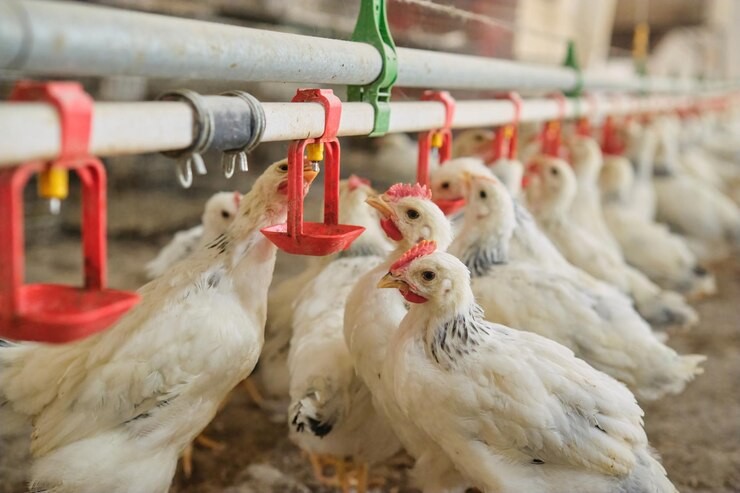
Poop Handling: How Do Farms Stay Clean?
Why Poop Cleanup System Rock
Manure management helps prevent disease outbreaks, controls odor, and contributes to environmental sustainability.
Belt Mover Poop Systems
The manure conveying belt collects the feces to the end of the chicken house, and transmits it to the outdoors through the transverse manure conveying belt.
Scraper Poop Collectors
Some systems use mechanical scrapers to push manure into collection pits or conveyor belts. These are often used in floor-based poultry houses.
How Does Good Poop Handling Help Bird Health?
Removing manure reduces ammonia buildup, limits pest infestations, and minimizes disease risks—thereby improving overall flock health.
Weather Control: How Do Farms Keep Things Steady All Year?
Why Temp Control Matters for Birds
Birds are sensitive to temperature fluctuations. Proper climate control ensures optimal growth rates and egg production while reducing stress-induced behaviors.
Heat and Cool Options
ZEUS’s Customized Chicken Coop Poultry Water Curtain Room Cooling Pad offers effective evaporative cooling solutions in hot climates.
Dampness Control Tricks
Dehumidifiers or strategically placed ventilation fans help maintain ideal humidity levels inside poultry houses.
What Part Does Air Flow Play in Stopping Sickness?
Good ventilation minimizes airborne pathogens by controlling air quality. Ventilation system: ensures air circulation in the chicken house.
Egg Pickup and Handling: What Tech Speeds Things Up?
How Do Eggs Get Grabbed Safe and Quick?
Automated egg collection systems streamline daily operations while minimizing egg damage.
Hand vs. Auto Egg Lines
Automatic egg collection system: It is an important part of the stacked layer cage equipment. Auto lines drop worker costs and egg cracks compared to hand pickup.
Egg Movers and Sorters
Advanced conveyors transport eggs from cages to centralized collection points where sorting devices remove dirty or broken eggs.
What Keeps Eggs Good During Moving?
ZEUS’s automatic egg collecting system is equipped with a soft egg removal device, which can remove soft and broken eggs before the eggs enter the egg collecting machine. Gentle rollers, cushioned trays, and soft egg-removal mechanisms are employed to maintain shell integrity during transit.
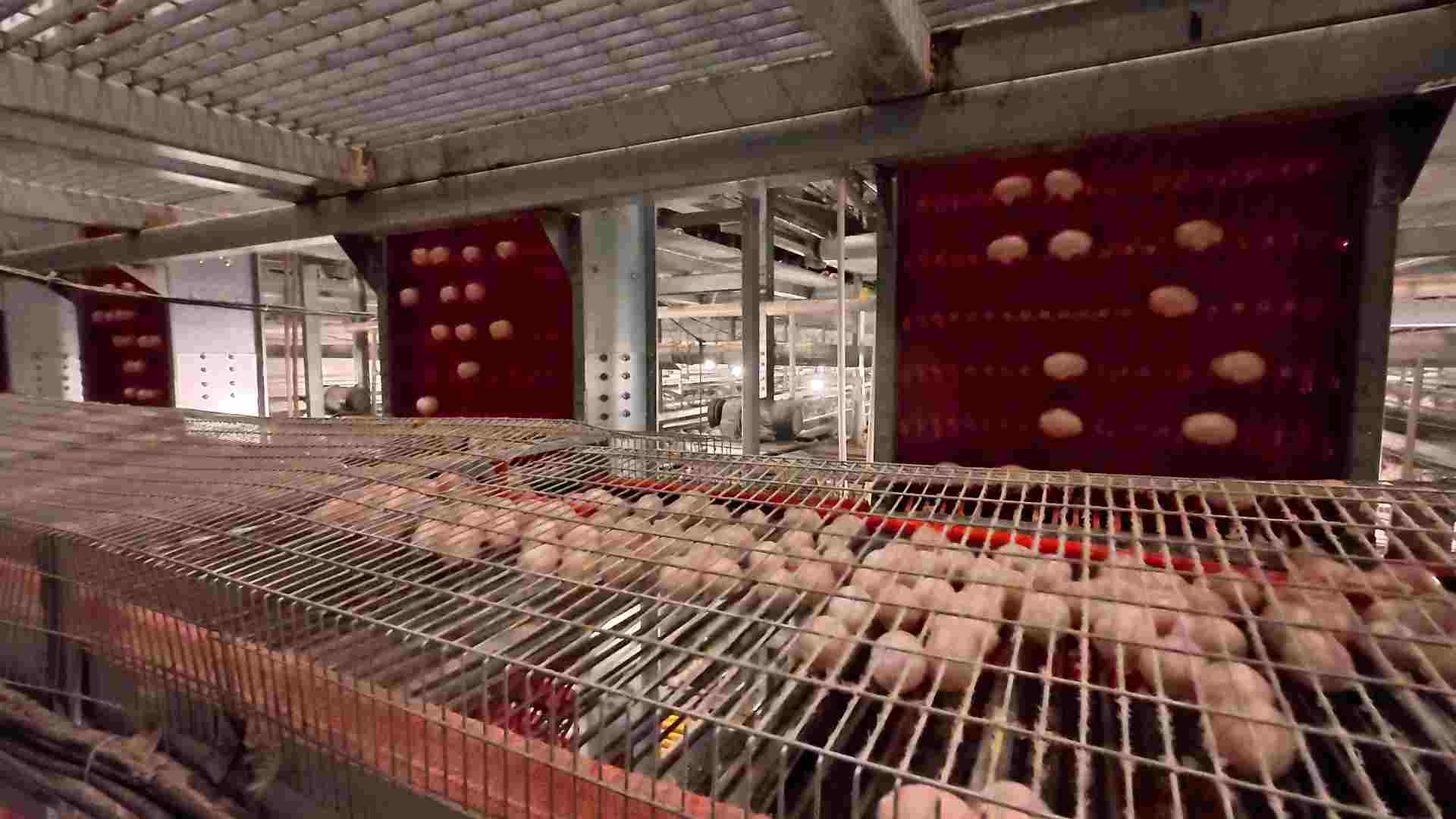
Watch and Control Systems: How’s Data Used to Tune Things?
What Sensors Do Modern Farms Use?
Modern farms deploy sensors for temperature, humidity, CO₂ levels, ammonia concentration, feed levels, and water flow—allowing real-time monitoring.
Sound or light alarm devices can realize the supervision and control of the water supply system.
How Do Smart Panels Help Farmers Choose Smart?
Centralized control panels integrate all monitored data to automate climate systems, feeding schedules, lighting cycles, and more—leading to data-driven decisions that enhance farm efficiency.
Meet ZEUS: A Solid Name in Poultry Equipment
Who’s ZEUS and What Makes Their Products Pop?
At ZEUS, we’re all about handing over top solutions fitted to today’s poultry needs. Hebei Zeus Machinery Manufacturing Co., Ltd. has been committed to the R&D and manufacturing of modern livestock and poultry breeding equipment since its establishment.
Our goal is to provide practical, economical and environmentally friendly solutions through intelligent automation technologies. We integrate R&D, design, manufacturing, installation and after-sales service and integrate domestic and international trade.
What Gear Does ZEUS Have for Modern Poultry Farms?
We offer an extensive range of products including stacked chicken coops, broiler cages, layer cages, cage-free feeding systems, poultry defecation systems, poultry feeding systems, poultry drinking water systems, egg delivery systems, climate control components such as exhaust fans and cooling pads, as well as customized steel structure housing solutions.
For instance, our Broiler Breeding Supplies Automatic Plastic Feeding Trays made from PP plastic are designed for 15–25 chickens per unit, exemplifying our commitment to both efficiency and animal welfare. Built from high-quality raw materials, our breeding system equipment boasts a service life of 8-10 years.
FAQ
Q: What gear do you need to kick off a small poultry farm?
A: Essential equipment includes cages or housing structures, feeding systems (automatic or manual), drinking systems (nipple or bell drinkers), manure removal systems, climate control units (fans/cooling pads), egg collection setups for layers, and monitoring/control devices.
Q: How often should you clean or fix poultry equipment?
A: Regular daily cleaning of feeding and drinking equipment is crucial. More thorough maintenance should be scheduled weekly or monthly depending on usage intensity to ensure optimal hygiene and equipment longevity.
Q: What’s the usual lifespan of poultry cage gear?
A: Built from high-quality raw materials, our equipment boasts a service life of 8-10 years. Proper maintenance can further extend operational life.


